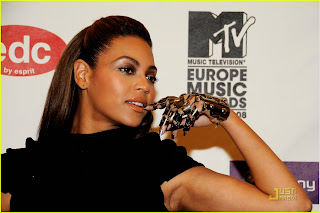The topic of rationalization and instrumentality in play is a
particularly interesting topic to me, but only because I shy away from
achievement systems myself. I am also not sure I understand the motivations of
other players when they head straight into the “XLMMO”, the concept Mikael Jacobsson
applies as a gateway to understanding what in the world is going on here in “The Achievement Machine”.
 |
| My WoW achievement sheet. Click to evaluate! |
I remember a WoW player who once explained that she found the decision
to change her main to her alt a very hard one to carry out. Not because it had
ramifications for her spot in the raid or similar, but because the alt, the
secondary character, didn’t feel as “real” until they have achievement points, pets, and
mounts. She had been playing WoW before the achievement
system was implemented, and now she was hooked and could barely explain why.
 |
| A dev version of Modelviewer being buggy. |
I am nothing like this. When they announced they were going to add achievements
to WoW, the most effort I put into my reaction was perhaps raising an eyebrow.
Did these achievement-points act as a currency? Could you purchase nice stuff with these points? If not - meh!
Nope, you just accumulated them and they were, of course, on display (A small portion of them, however, did earn you stuff - titles, pets and mounts being the most notable, but these are few).
Was this something I needed to work on too? How much of significance would this
strange system have?
Later I earned achievements, but never on purpose, I just
randomly earned them out and about, except for the times I was unfortunate
enough to be grouped with a guild member(s) who were very fond of them, and I
would have to endure strange and elaborate tactics to fulfill an achievement
that to me sounded like a bad joke. Of course to the achievement-player, these
are not just extra challenges, they are more than that!
But I’ve seen the light, I understand better now, in a rational way
(ironically), but not in an experiental way, I don’t know how it feels to be
compelled to do them. But Jacobsson found a way to analyze achievements
through the MMO terminology:
“When we look at achievements as parts of the XLMMO, we see that they are more than just rewards.[…] The gamerscore can be compared to experience points, games become quest lines, and the gamertag is the character name.”
I now understand the WoW player with the mysterious and, to herself even,
inexplicable sense of an unfinished and unreal alt that was to become her main.
In the XLMMO, a character, regardless of whether its actual level is 85,
has not really leveled that much. It needs more leveling, more
experience in this meta system, before it can gain the appropriate status of a “real”
main. And this player's meta system even included collections - both pets and mounts. I am
telling all the non-WoW players, that completing such collections inevitably will
be both very expensive in gold, time and patience.
Jacobsson explains (amongst other things - also my attitude):
“The different strategies and ways of conceptualizing the system shows how players have appropriated the technology and socially reconstructed it to fit their gaming pleasures, while at the same time, many players remain deeply conflicted over these gaming habits and feel trapped in a deterministic system dictating to them what to do.”
Besides Jacobsson and I at first having our confusion
and curiosity in common, I think me and the achievement-WoW-player also have a
lot more in common than we think: one of us has signed out the other signed in,
but both can sometimes feel trapped by a system whose ability to be forceful
traps us both.
As a final note, I find the expression that the character doesn’t feel “real”
to be very interesting. Why the word “real”? It's a big word. What does this mean?
Well, it’s not like the feeling of “realness” doesn’t apply to me, I
find the word “connection” to encompass more of the relationship I have with my
characters/avatars. I tend to connect with my characters very quickly, and
sometimes my sense of competence through the character is what makes it real. I
can get a very tangible sense of a character at the level of 5 to be very real
and with huge potential, despite the fact this character, in both the MMO and
the XLMMO is far far from “experienced”.
Could there perhaps be a relation between embodiment and achievements, at least for some?





















Corpsegrinder is using these anti-gay words as swearwords, as derogatories. For this to work, he has to equate being homosexual to something bad - so bad, it's meant to offend us (or well, Alliance players), so there's also a wider expectation for others to also find it derogatory to be called gay/fag/homo.
Is "fag", despite its current homohobic meaning, becoming a general swearword? How much of a word's history is evoked when using it? And what does it say about our culture when homophobic slurs can go under the radar this easily?
As a final note, I'll quote the WoW Harassment Policy
Am I right in sensing a little doublestandard here, when players posting violent, crude or vulgar language on the forum or in the game are risking penalty, while Corpsegrinder openly screaming so many beeps on that video displayed at Blizzard's own convention, is hilarious and totally ok?
Well, it wasn't okay for long.
Here's the final apology from Michael Morhaime (it took a few tries to get it right):